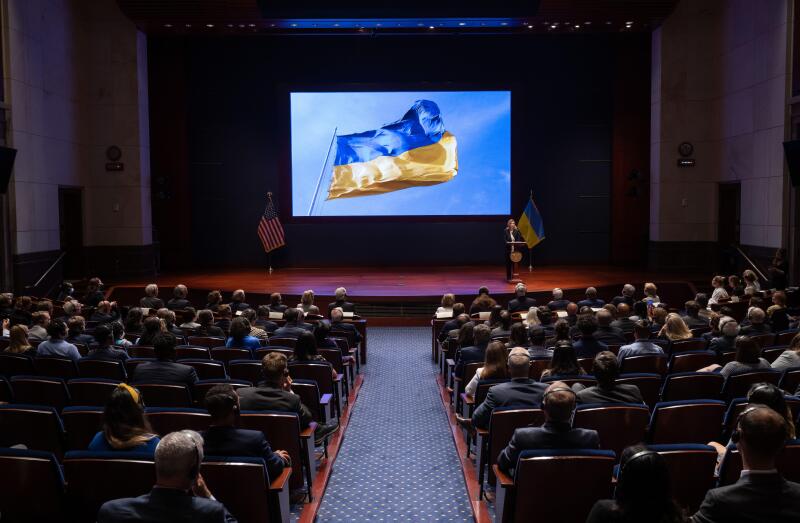
Perhaps the only surprise about this week’s request from Ukraine to freeze bond payments is that it has taken so long. The vast economic damage from Russia’s invasion is clear, and it long stopped making sense for the government to continue to fork out for coupon payments — no matter how much it, admirably, wants to maintain good relations with capital markets.
Its initial consent solicitation, which proposes a two-year debt moratorium, will surely gain overwhelming support. It is only a provisional solution, but it is the right one. In 2020, bondholders applauded Ecuador and Suriname for similar moves — a way to buy time mid-crisis with the permission of creditors before more comprehensive restructurings, rather than simply stopping payments, as Argentina did.
Ukraine is facing a far greater catastrophe than those nations were, and it would be a waste of resources to start thinking, in the middle of the war, about what the restructuring might look like.
One can only hope that, at some point in the not too distant future, Ukraine regains its peace and sovereignty. Then, and only then, a more intricate debt restructuring can begin. When this happens, international financiers from both the official and private sectors must see this is an opportunity to co-operate on a government debt workout like never before.
There has been much progress in the sovereign debt restructuring world, but a way to gather all creditor parties around one table to ensure a fair and sustainable solution is elusive.
Here, there will surely be global discussions between those who control sources of finances about how they can fund the recovery of the country, and some creative thinking will be required. For example, it must be ensured that donor money is entirely directed to its intended purpose, and not to repay private creditors. But it has to be done in a way that ensures Ukraine regains its much treasured access to international capital markets.
As such, bondholders cannot seek to negotiate away from the broader discussions regarding the funding of the recovery, and nor can official lenders and donors attempt to shrug off the existence of private creditors.
Such is the good will towards Ukraine among Western official lenders and international financial markets that surely this will be a chance to provide a model for more sustainable sovereign debt workouts in the future.
